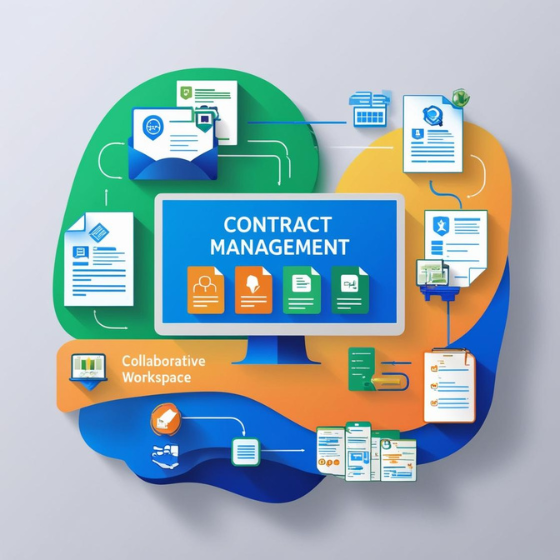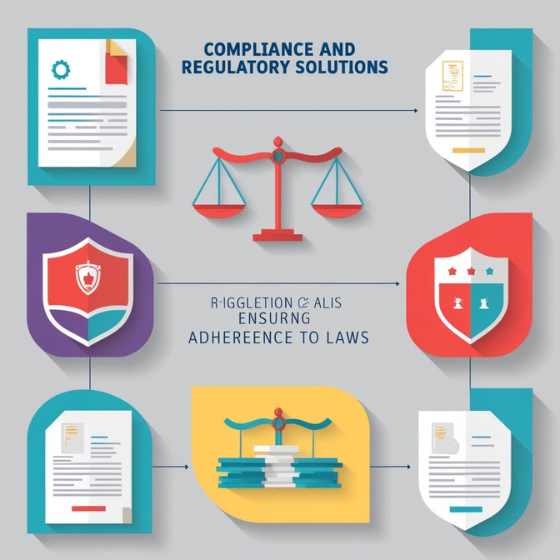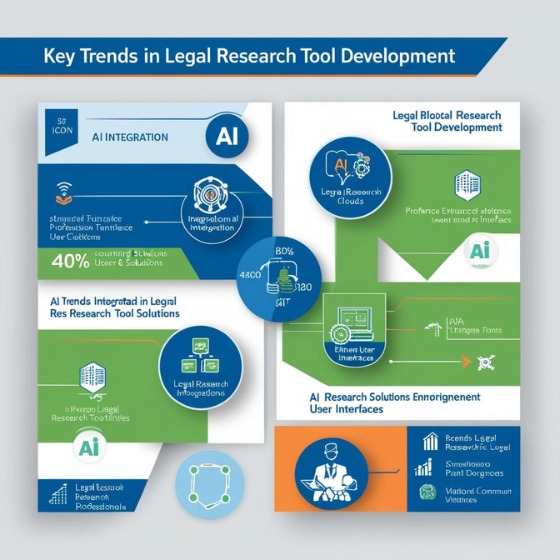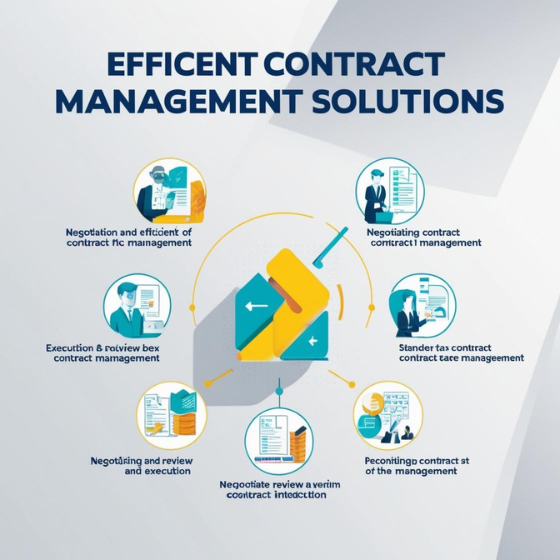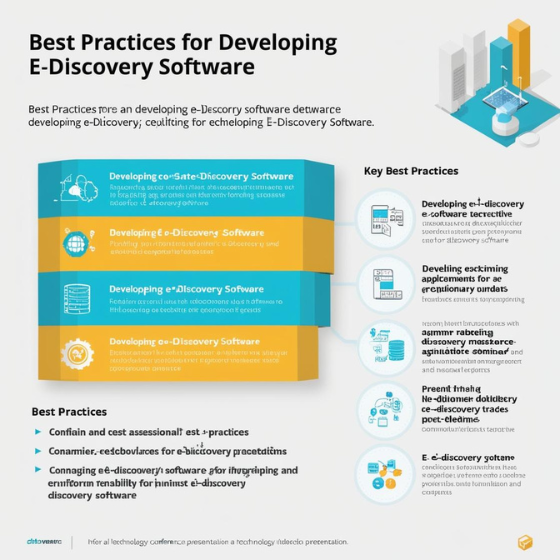Contract Management: Ensuring Compliance and Efficiency
In today’s fast-paced business environment, effective contract management is more important than ever. Whether you’re in the legal, procurement, or sales department, contracts play a crucial role in ensuring that businesses operate smoothly and stay compliant with laws and regulations. However, managing contracts manually can be cumbersome, inefficient, and prone to errors. That’s where contract management software comes in. This blog explores how efficient contract management ensures compliance and operational efficiency, with a focus on best practices for managing contracts in a digital age.
What is Contract Management?
Contract management refers to the process of managing the creation, execution, and analysis of contracts to maximize operational and financial performance while minimizing risks. In essence, it’s the lifecycle of a contract from inception to execution and beyond. This includes drafting, negotiating, signing, and ensuring the terms are met throughout the contract’s life. Effective contract management ensures that all contractual obligations are met, deadlines are adhered to, and both parties fulfill their responsibilities.
Why is Contract Management Important?
Poor contract management can have significant consequences for businesses. These may include missed deadlines, compliance issues, disputes, and financial penalties. Effective contract management ensures that contracts are executed in a timely and compliant manner, reducing risks and optimizing business operations.
Some of the key benefits of proper contract management include:
- Improved Efficiency: Automated contract management systems can speed up the contract creation and approval process.
- Risk Mitigation: Proper management ensures compliance with laws, minimizing legal and financial risks.
- Financial Savings: By automating reminders for renewals and renegotiations, businesses can avoid overpaying or missing opportunities for better terms.
- Better Collaboration: A centralized system makes it easier for stakeholders to collaborate on contracts, reducing confusion and errors.
Given these benefits, businesses need a robust system to handle contracts effectively. Let’s explore best practices for achieving compliance and efficiency.
Best Practices for Effective Contract Management
1. Centralize Your Contracts
One of the biggest challenges businesses face is keeping track of multiple contracts spread across various departments. A decentralized system leads to inefficiency, confusion, and the risk of overlooking critical deadlines.
Key Points:
- Centralized Repository: Using a centralized contract management system (CMS) ensures that all contracts are stored in one place. This enables easy retrieval and management, reducing the chances of losing track of important documents.
- Easy Access: With a CMS, authorized personnel can access contracts quickly, improving collaboration and decision-making.
- Document Versioning: Centralized systems also track versions of contracts, ensuring that everyone is working with the most up-to-date documents.
Centralizing your contracts streamlines workflows and improves transparency across departments.
2. Automate Contract Lifecycle Management
The contract lifecycle can be long and involve multiple steps: from drafting and negotiating to execution and renewal. Automation tools embedded in contract management software can simplify and speed up these processes, reducing errors and delays.
Key Points:
- Template-Based Creation: Use templates for standard contracts to speed up the creation process, ensuring consistency across documents.
- Approval Workflows: Automate the approval workflow to ensure that contracts are reviewed and signed by the right people at the right time.
- Automatic Reminders: Set up automatic reminders for key milestones like contract renewals, renegotiations, or compliance checks to ensure no deadlines are missed.
By automating the contract lifecycle, businesses can reduce manual errors and improve the overall speed of contract management.
3. Ensure Compliance with Legal and Regulatory Requirements
In today’s regulatory environment, businesses must comply with a variety of laws, regulations, and standards. A contract that’s compliant in one region may not be compliant in another, making it crucial to ensure that contracts meet the required legal criteria.
Key Points:
- Regulatory Compliance Monitoring: Utilize contract management software to track and ensure compliance with local and international regulations (e.g., GDPR, HIPAA, SOX).
- Audit Trails: Maintain detailed audit trails that record all changes made to a contract. This can be crucial in case of disputes or audits.
- Clauses for Compliance: Create custom clauses that address specific compliance needs. For example, include terms for data protection or intellectual property rights based on the latest laws.
Automating compliance checks and maintaining audit trails not only reduces the risk of legal issues but also makes audits much easier to handle.
4. Implement E-Signatures for Faster Execution
Traditionally, contracts were signed on paper, which could be a lengthy process involving multiple stakeholders. With the advent of digital solutions, e-signatures have made contract execution faster, more secure, and more convenient.
Key Points:
- Legally Binding: Ensure that the e-signature solution complies with legal frameworks such as the eSign Act in the U.S. or eIDAS in the European Union to ensure the validity of digital signatures.
- Faster Execution: E-signatures eliminate the need for physical meetings and paperwork, making it easier to get contracts signed promptly.
- Tracking: E-signature platforms provide a tracking feature that lets businesses know when a contract has been signed, improving visibility and accountability.
By using e-signatures, businesses can expedite contract execution and eliminate the delays associated with traditional paper-based processes.
5. Monitor and Analyze Contract Performance
Once a contract is signed, it’s essential to monitor its performance to ensure that all parties are fulfilling their obligations. Data-driven insights from contract management systems can help you analyze contract performance and identify areas for improvement.
Key Points:
- Key Performance Indicators (KPIs): Track KPIs such as delivery times, payments, and service-level agreements (SLAs) to ensure that contractual obligations are being met.
- Contract Analytics: Use analytics tools to assess trends, identify common issues, and improve future contract negotiations.
- Early Alerts: Implement early alerts for non-compliance or breaches to proactively address issues before they escalate.
By monitoring contract performance, businesses can ensure that they are maximizing the value of their agreements and addressing potential issues promptly.
How Contract Management Software Helps Ensure Compliance and Efficiency
Implementing contract management software is one of the most effective ways to enhance both compliance and efficiency in contract management. Here’s how:
- Centralized Data Storage: All contracts are stored in one accessible location, reducing the risk of missed deadlines or misplaced documents.
- Automated Alerts and Reminders: Automated systems help ensure that businesses never miss important contract milestones like renewals or renegotiations.
- Compliance Checks: Many contract management systems include tools that help ensure contracts adhere to legal and regulatory standards.
- Version Control: Track changes in contracts over time to avoid disputes and ensure that the latest version is always in use.
- Collaborative Tools: Allow multiple stakeholders to review, edit, and approve contracts, improving workflow and transparency.
Contract management software reduces administrative burdens, boosts productivity, and ensures compliance with regulations, making it a must-have tool for modern businesses.
Conclusion
Effective contract management is a cornerstone of business success. By centralizing contracts, automating workflows, ensuring compliance, and utilizing digital solutions such as e-signatures and analytics, businesses can enhance both efficiency and compliance. Implementing the best practices outlined in this blog will not only streamline your operations but also reduce risks associated with manual processes and non-compliance.
If you’re looking to improve your contract management processes, contact us at Sodio today to explore our solutions designed to boost efficiency and ensure compliance.
